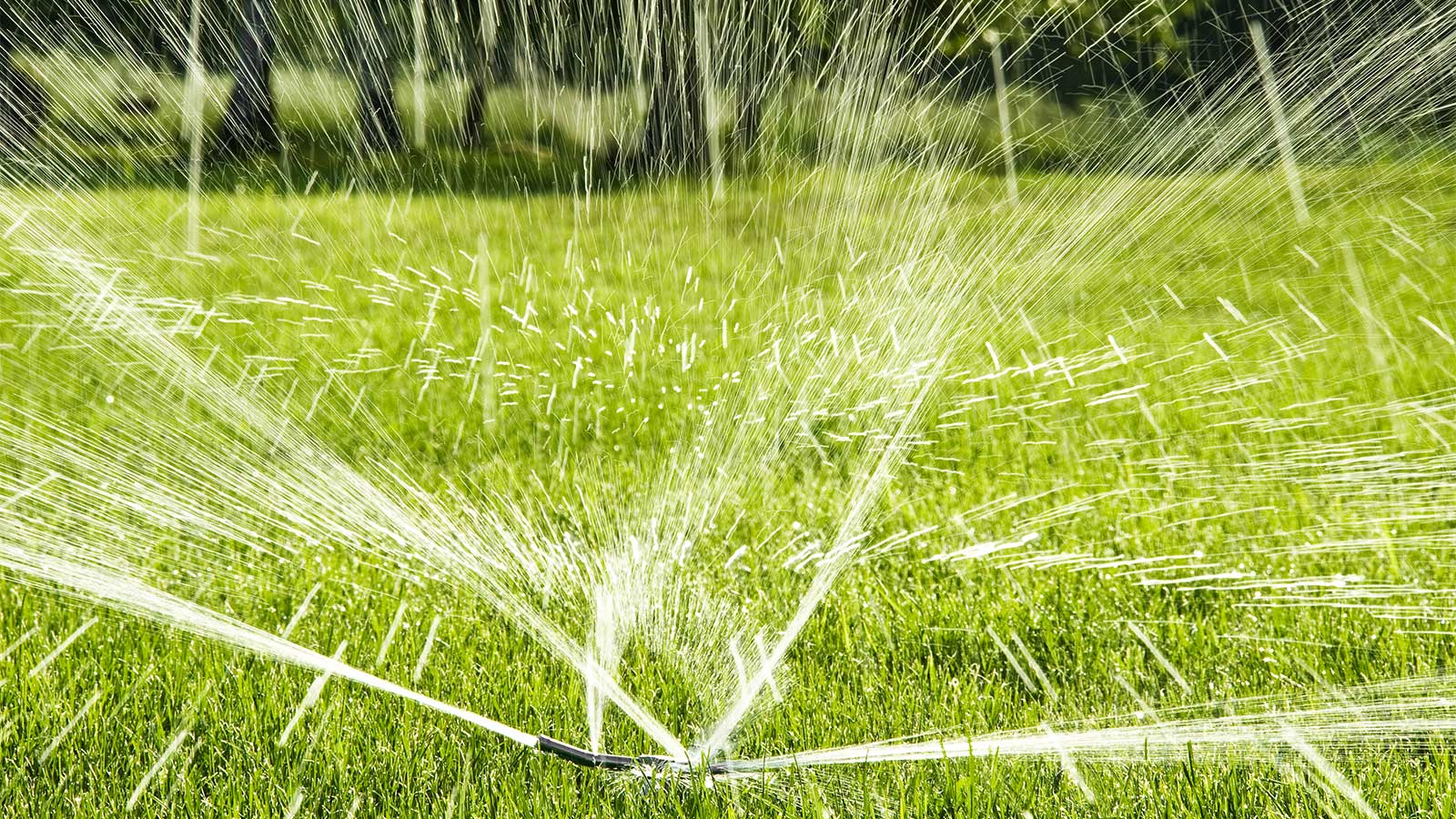Q. I work for a company that supports sustainability and green living, but you’d never know it if you take a walk through our offices. Despite being in the Southwest — which is in a drought — our sprinklers are on all the time and our plants, though verdant, are sopping wet.
How do I get my employers to stop spending so much on making our offices look great without causing HR problems for myself?
Hannah
Albuquerque, N.M.
A. Dearest Hannah,
Your letter is only one among many that have been flooding my inbox lately – all of you concerned about water conservation in the face of drought. We tackled water use and the recycling bin earlier this week, so let’s dive in and call this Drought Week at Ask Umbra. True, Hurricane Norbert has been wreaking watery havoc on the Southwest lately. But experts say it won’t be enough to lift the longstanding drought, so your queries remain distressingly relevant.
Overwatering lawns is indeed a major source of water waste, Hannah. Nationwide, we dump 9 billion gallons of water on our landscapes every day – and as much as half of that is wasted because of inefficient irrigation practices. Those stats refer only to residential water use, so commercial landscaping is bound to contribute buckets more.
You don’t mention whether your office ecosystem includes much more than grass, but unless the place is decked out with rainforest plants, a lighter touch with the hose is in order (and if you are growing banana trees out there, well, this problem is even bigger than I feared). Your local water authority recommends watering just twice a week in fall (and only three days a week in summer). Dousing it more than that can promote microorganism growth and disease, and besides, grass grows better after its roots dry out a bit between waterings.
But you, Hannah, are on the job to change this saturated office culture. You hint that your one-woman water-conservation campaign might not be received with applause, so I’d suggest using the universal language of bosses everywhere: the bottom line. If you place your appeal under the umbrella of saving the company cash, the higher-ups will probably perk up their ears.
David Morris, spokesman for your very own Albuquerque Bernalillo County Water Utility Authority, had a few specific bits of ammunition for you. One: The city actually prohibits daytime sprinkling from April to October to prevent wasting water through evaporation. “If a business is using sprinkler irrigation during the hottest part of the day, they’re violating the ordinance and could be fined,” Morris said.
Then there’s the cost of all that illicit water in the first place. Because you don’t even need it to keep the greenery looking fresh, Morris estimates that cutting back on the sprinklers can save the company up to hundreds of dollars a month on its water bill. Just think what you could do with that windfall – a coffee upgrade in the break room, perhaps, or T-shirts for your company kickball team!
If the conversation is going well so far, you might then hit the boss with one final point — about the company’s invaluable public image. Think of it this way, advised Morris: “Do we want to be sending the message that we’re responsible desert dwellers, or that we don’t care about the resources that belong to the entire community?” I very much hope that will leave your supervisor in stunned and thoughtful appreciation for your go-getting, Hannah.
Standard boss-handling guidelines apply, too. Don’t try to make your case in the middle of a hectic deadline. Present a well-thought-out solution rather than vague dissatisfaction (“If we switch to this irrigation controller, we’ll save X gallons and Y dollars per month”). And provide reassurance about possible downsides (“I can arrange for a free water audit to make sure the plants are getting what they need”).
And if all that fails? You can always call the water authority and report them.
Of course, I jest (well, mostly). Holding your workplace to high environmental and citizenship standards should be celebrated, not get you uninvited to the company picnic or worse. It should brand you as a visionary, not a troublemaker. And it should definitely get those sprinklers turned off. Good luck.
Gushingly,
Umbra



